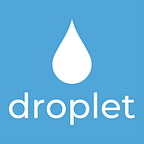Twitter CEO Jack Dorsey expressed feeling that Twitter had set “a dangerous precedent” by banning President Donald Trump from the platform on January 7th, the day after rioters entered the US Capital. “Having to take these actions… sets a precedent I feel is dangerous: the power an individual or corporation has over a part of the global public conversation,” he tweeted.
But the question must be asked… did the banning of Donald Trump set a precedent of taking control over the global public conversation, or did it merely shed light on the control these companies already have? As we pointed out in our previous post, platforms like Twitter and Facebook haven’t merely allowed conspiracy theories and hateful rhetoric to exist on their platforms, their algorithms have actively promoted them.
A platform is defined, in the case of social media, as “a place for public discussion.” Big Tech execs have decried almost any action on their part to moderate their platforms as interference in that discussion. However, they stay conveniently quiet about the evidence that their engagement algorithms interfere as much as any policy they could put in place. For instance, Mark Zuckerberg, in a bid against censorship, shut down efforts to prioritize fact-based posts and push down false or polarizing posts in Facebook’s algorithms. What he failed to acknowledge was that the algorithms were already doing this type of prioritization, simply in reverse. If prioritizing posts a user sees is censorship, then the current state of Facebook’s algorithms is nothing less than a censorship of truth and calm.
Twitter similarly defends free speech, touting a desire to “promote healthy conversation,” but has failed to offer a satisfactory solution to the cancel culture proliferating its platform and squelching healthy conversation. Trending hashtags are easily hi-jacked by trolls, and individuals who find themselves the target of controversy have no way to avoid the twitter storm of abuse. Death threats, racial slurs, sexual harassment and a flurry of other abuses are commonplace in many Twitter “conversations” surrounding controversial topics or figures, having the opposite effect of healthy conversation and muting out free speech in its own right. In his book So You’ve Been Publicly Shamed, Ron Jonson explores the real world consequences of these kinds of online attacks, likening them to the Witch Hunts of old.
The problems surrounding free speech on social media are complex, and there is no simple solution that both guards free speech and protects us from the effects of harmful rhetoric and misinformation. But it is safe to say that those in charge are very, very far away from finding any acceptable solution. Should the world be at the mercy of Silicon Valley billionaires while they struggle to figure it out? Should they continue to hold such power over the global public conversation? Even looking at their own words on the matter, the answer is a clear and resounding no.
